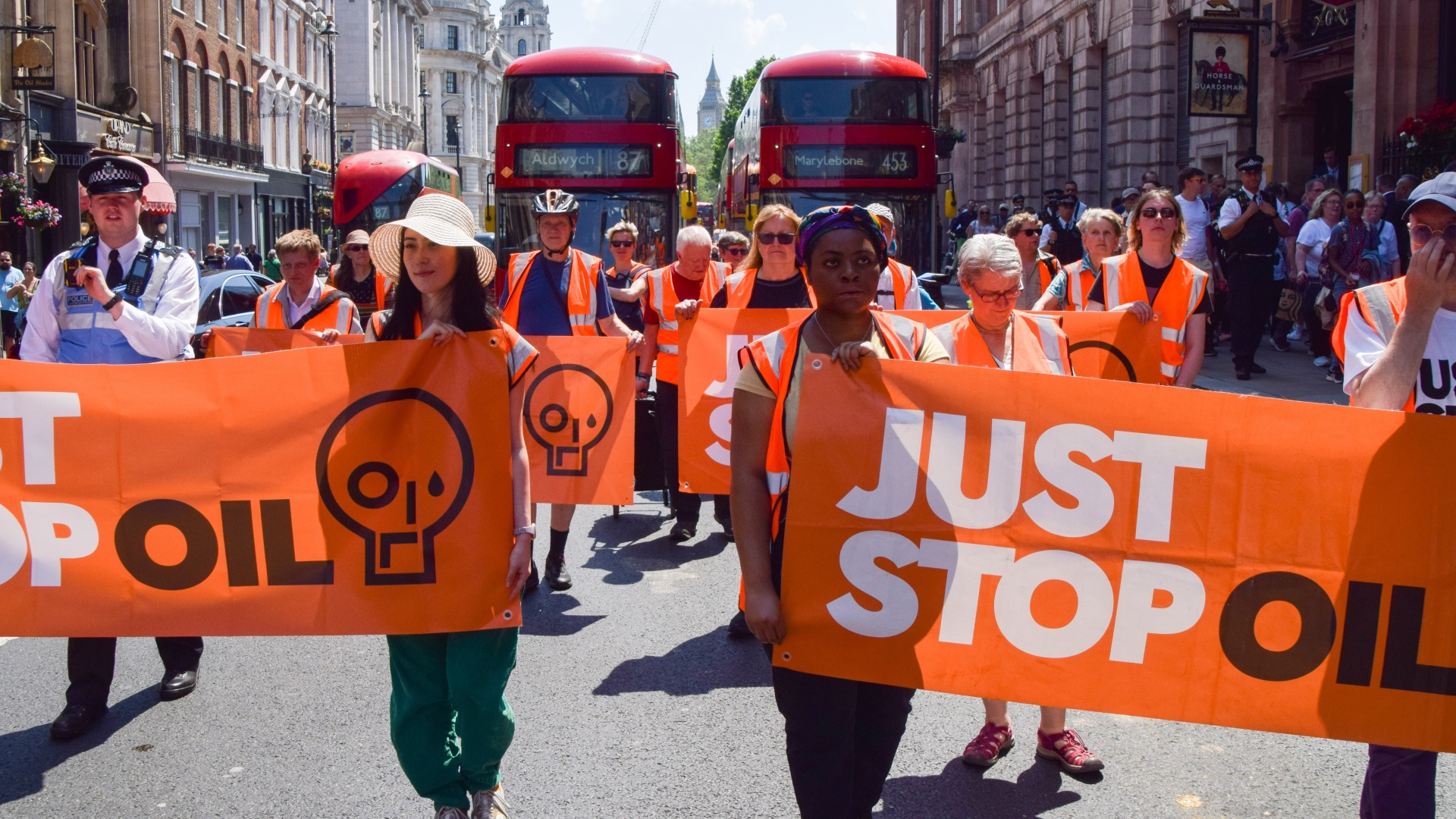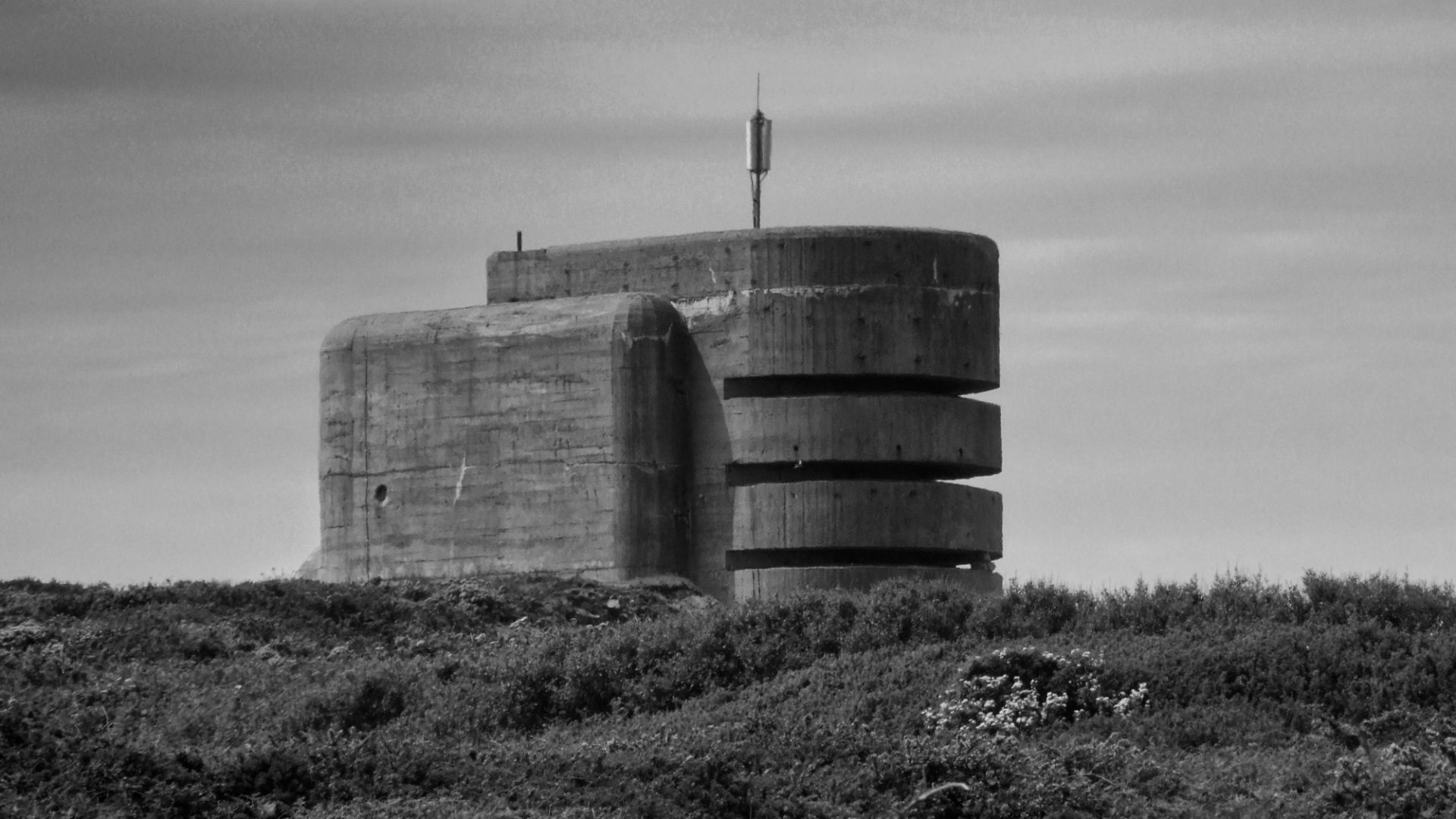Re: Matthew d’Ancona’s “Just Stop Oil are right.. the fact that they irritate people is the point” (TNE #348). Why don’t the JSO people focus their protests on the individuals who can actually make a change? Most of those who are to be found on the M25 or M4 on any given day can do nothing apart from vote at elections every five years. I would suspect that there is clear in-house communication to ensure that none of the JSOs get stuck in the traffic jam on the days they may have to work, see a doctor or go to the hospital.
When will the JSOs take more notes from the Suffragettes? They targeted the elite. The JSOs could glue themselves to the fence outside No 10, or even the Carlton Club and suchlike. They could block the driveways of MPs. They could glue their hands to the Houses of Parliament’s railings. They could block the pathways between parliament and MPs’ favoured pubs and hangouts.
But that would require intelligence and effort to find some of those locations – and a bit more risk. Or they could go on hunger strikes. That’s a very effective form of protest.
Blocking the M25, the M4, trains and even airports will only affect working people who can do nothing about the situation except at election time. And history has shown how little that actually accomplishes.
Robert Patterson
Bishop’s Stortford, Herts
Matthew d’Ancona’s dedication of a column to understanding Just Stop Oil’s protests shows a rare intellectual clarity and bravery. Unfortunately, Keir Starmer’s alleged comments on hating “tree huggers” suggest merely confusion and cowardice. Today’s protesters are driven by a grasp of science, not a spiritual quest.
Those protesters also understand that, while new energy sources and green technologies can help sustain our way of life, only politics can prevent climate breakdown. It’s political decisions that will keep oil and gas in the ground and shift the world to low-emission agriculture and building. At the moment, the necessary political leadership lies with Just Stop Oil, whether on the sports field or in the road.
Michael Clegg
Matthew d’Ancona is absolutely correct to say we are not giving serious attention to the problems facing mankind. We should be rationing petrol and diesel fuel, and already beginning the mass manufacture of cars powered by hydrogen.
These require much lighter lithium batteries, and the only byproduct from their engines is water. If the hydrogen is produced using electricity from solar, wind, tidal or nuclear sources, it is known as green hydrogen. By contrast, blue hydrogen is produced from natural gas supported by carbon capture and storage.
Paris already has 600 hydrogen-powered taxis. We need a whole network of garages where drivers can refuel with hydrogen.
David Hogg
The ACT UP coalition did not “end the Aids pandemic”, as Matthew d’Ancona wrote. That is not possible (it is not curable, nor vaccinable).
The treatments that ACT UP pressed for control the infection only, permitting a nearly normal life and reducing the likelihood of onward HIV transmission.
Prof Sebastian Lucas
Westbury, Bucks
Trust issues
“Only the rich paying more tax will save the NHS” writes Paul Mason (TNE #348). But defining the riches to be taxed and how to tax them is more interesting.
If we are not to increase income tax, we should look to land and the unoccupied buildings on it, much of it owned by offshore anonymous trusts. Land value taxation (LVT) would tap that huge untaxed pot of money that at present gets salted away from prying eyes with our lax financial regulation. It would not add to the general population’s tax burden, and would provide huge revenues for the treasury.
Alan Craw
Paul Mason is of course right about tax rises to fund the NHS. Yet Labour, with their child benefit caps and their promise to continue with Tory tax and spending plans until growth returns, show no sign of recognising this, or recognising that the Tory tax and spending plans that are not producing growth now are unlikely to produce growth in the near future.
Of course I hope the Conservatives lose this week’s byelections, but I am increasingly pessimistic about what might replace them.
Camilla Walker
Close enemies
Re: “Old news” (TNE #348). By attending Rupert Murdoch’s birthday party, Sir Keir Starmer is simply following the old adage about keeping your friends close, but your enemies closer.
Starmer has thus far been able to wipe off personal attacks from the Tory press quite easily – partly because he’s not a Jeremy Corbyn, with a wardrobe of bad associations going back decades, or a scoundrel like Boris Johnson, or a talentless void like Liz Truss, or a billionaire like Rishi Sunak.
But he’s going to come under fire as an election comes whatever happens, and he probably believes that he can lessen the blow by engaging with journalists rather than declaring war on them. Headlines are powerful things, after all.
Jack Millard
The Daily Telegraph is declining and falling (TNE #348)? This must be good news for manufacturers of miniature violins.
Phil Good
Via Facebook
Name blame
I was interested to read “Names that live on in language” (TNE #348), where Peter Trudgill describes the process by which surnames become adopted into language.
He might like to reflect on the abuse, bullying and discrimination that my own surname has generated in recent years. I can provide examples.
Roderick Gay
Cheltenham, Glos
Bullet point
In “Macron’s new global dilemma” (TNE #348), John Kampfner makes reference to the infamous 2% of GDP that Nato members are meant to spend on defence.
I have never seen an authoritative explanation of how this arrangement is supposed to work or be monitored. My understanding is that when it was reached some years ago there was, for instance, no list agreed as to what spending was counted in the 2% target.
For example, one thing the UK supposedly did that others didn’t was to move service pensions from the social security budget to the defence budget. So defence spending increased without purchasing a single extra bullet!
In addition, presumably, most Nato countries are regularly “in and out” of meeting the 2% target – if defence spending remains constant and GDP drops then you’re in, if it goes up you’re out? An explanation, please!
Bob Hale
Portishead, Somerset
The EU works
Re: Dr John Watson’s letter about pro-Brexit arguments (Letters, TNE #348). Nobody, and certainly not I, ever said that the EU was perfect. But for all its imperfections, the EU works.
Brexit, for all the extravagant promises that Brexiteers have made and continue to make, has failed spectacularly.
I would always allow my enemies a way out if they repent their sins; even if that means soothing their bruised egos.
Don Adamson
Bradford, West Yorks
Good to hear that Peter Haydon does not think we will be blocked from rejoining the EU (Letters, TNE #347). Now all we need to do is elect a party that wants to even start talks about rejoining, convince those on the European Council who would rather not have Britain back in the union to change their minds, and reassure them that we won’t just vote to leave again in a few years.
In the immediate run-up to leaving, and in the wake of it, we have demonstrated that Britons have anything but the rigour, clarity or discipline Peter writes about. We’ve shattered our worldwide, let alone European, reputation and shown we’re more than prepared to rip up treaties before the ink’s dry, even in defiance of international law.
I’ll never say never, and I hope we do rejoin, but we’re in the wilderness for a good few years, if not decades, yet. There may be some lights on in the EU for us, but they’ll only get fewer and dimmer if we don’t adjust our attitude.
Jon Salisbury
Safe havens
Patience Wheatcroft (“The dream and the nightmare”, TNE #347) draws attention to the £169,000 cost to the UK of sending one person to Rwanda under our immoral and illegal deal.
Yet while Rwanda might not be safe, its own law sees the UK as a safe country to which asylum seekers can be sent. How many have we taken from Rwanda so far, and shouldn’t we ask what more we can do to make the UK a country in which they can live and prosper?
Roland Lazarus
Billericay, Essex
Cursed at birth
It is often the custom for new parents to give their offspring names that reflect the sort of characters they admire or hope the child will emulate as they grow.
Interesting that Boris Johnson’s current newborn should be named Frank (a quality utterly alien to its father) Odysseus – a mythical Greek king who abandoned his wife, was lured by female Sirens and cursed by Poseidon.
Carol Hedges
Harpenden, Herts
There are two ex-prime ministers. One always tells lies and the other always tells the truth, each hiding behind a door. You are allowed to ask one question on a piece of paper and slip it under one door. How can you be sure which door Boris Johnson is hiding behind?
If you simply ask “Are you Boris Johnson?, you’ll get “No” for an answer on the returned paper and you won’t be sure if it’s the truthful ex-PM or Boris Johnson lying.
The solution is to ask, “If I were to slip a piece of paper under the other door asking ‘Are you Boris Johnson?’, what answer would I get?”
The paper is returned with an answer. There are two possibilities:
a) If Boris Johnson was behind the door you slipped your question under he would know the truthful ex-PM was behind the other door and that they would answer “No” to the question “Are you Boris Johnson”, so Boris Johnson being a liar would answer “Yes” on the paper and push it back to fool you.
b) If the truthful PM was behind the door they would know Boris Johnson was behind the other door and being a liar would answer “No” when asked if it was him, so the truthful PM would answer “No” and push it back to correctly inform you.
So, whichever door you slip the paper under, you know if you get the answer “No” Boris Johnson is behind the other door and if you get the answer “Yes” he’s behind this one. You can now confidently make an arrest.
John Handford
Dorries days
Nadine Dorries’s non-resignation reminds me of a scene in Colin Dexter’s Inspector Morse novel The Daughters of Cain.
Morse and Lewis are investigating a murder, and Lewis tells Morse that he has obtained an address in Bedford for someone they wish to interview.
Morse responds “did any good thing ever come out of Bedford?” Presumably the quote is based on a Biblical quote “did any good thing ever come out of Nazareth?”
Colin Price
Ilford, London
Nadine Dorries has not spoken in the Commons in a year. For the first time in my life I say: Thank you, Nadine.
Ellie Court



